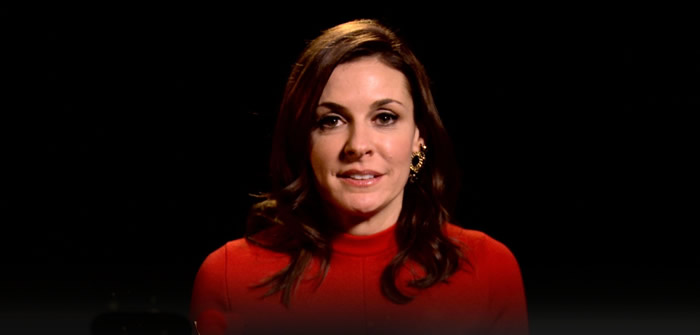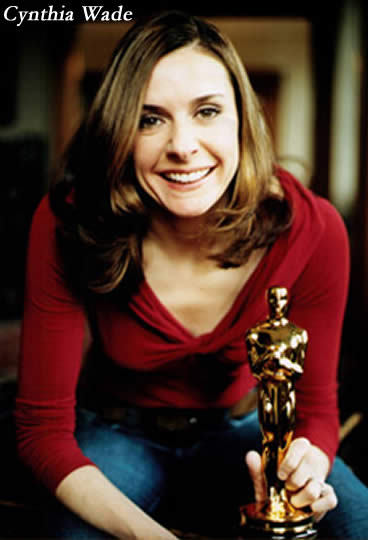 Mondays at Racine directed by Cynthia Wade is nominated for 2013 Best Documentary Short Film Oscar. Every third Monday of the month, brassy Long Island, New York sisters Cynthia and Rachel open up their hair salon, called Racine, and offer free beauty services for women undergoing chemotherapy. Determined to make their customers feel beautiful, the glamour duo knows that Mondays at Racine goes beyond purple painted toes or a frothy facial. The sisters are determined to give women who are losing their hair, eyebrows and eyelashes a sense of normalcy and dignity in a traumatic and uncertain time. The story of what hair means in our culture quickly unfolds into an unexpected look at womanhood, marriage and survival.
Mondays at Racine directed by Cynthia Wade is nominated for 2013 Best Documentary Short Film Oscar. Every third Monday of the month, brassy Long Island, New York sisters Cynthia and Rachel open up their hair salon, called Racine, and offer free beauty services for women undergoing chemotherapy. Determined to make their customers feel beautiful, the glamour duo knows that Mondays at Racine goes beyond purple painted toes or a frothy facial. The sisters are determined to give women who are losing their hair, eyebrows and eyelashes a sense of normalcy and dignity in a traumatic and uncertain time. The story of what hair means in our culture quickly unfolds into an unexpected look at womanhood, marriage and survival.
Academy award-winning director Cynthia Wade has a proven track record for presenting dramatically compelling and emotionally gripping documentary stories. From tender coming-of-age stories of children for Sesame Street to emotional portraits of teens for the Sundance Channel, Cynthia has an unusual talent for revealing surprising human moments – all with unparalleled craft and creativity.
Wade has won festival accolades all over the world – in the past four years alone, she’s won 33 film awards, including 2 awards at Sundance, 3 awards at Palm Springs, prizes at Aspen and the Hamptons, as well as film festival awards in Spain, Italy, Argentina and Belgium. She’s been making films and commercials for more than 15 years for clients such as MTV, HBO, Cinemax, IFC Channel, and PBS; her clients include Hershey, Bristol Meyers Squibb, the National Guard, Phoenix Children’s Hospital and the Boston Computer Museum.
Bijan Tehrani : How did you encounter the subject of Mondays at Racine?
Cynthia Wade: I was talking with some of my producers, we were exploring different themes for new films and that day an op-ed had appeared in the New York Times written by a nurse. She wrote about what it felt like to shave the head of a cancer patient for the first time and the way in which she had crossed over in that moment of shaving the patient’s head from a medical professional to an emotional caregiver. It was a transformative experience for this nurse to realize that as much as we focus on the protocol, the procedures and the therapy, there is this emotional component that is almost intangible yet very palpable when it comes to hair loss and very strong. In the face of losing your health and potentially your life, why is it that losing your hair is so traumatic? Why is hair so important if you’re at risk of losing your life? And yet, it is a huge part of our identity, and it’s almost unconscious how deep it goes. What happens when what’s been on your head your whole life and your eyebrows and eyelashes which have defined your face disappear? You’re facing the world looking very different yet inside you are still very much the same person. The world is seeing you very differently and certainly perceiving you differently.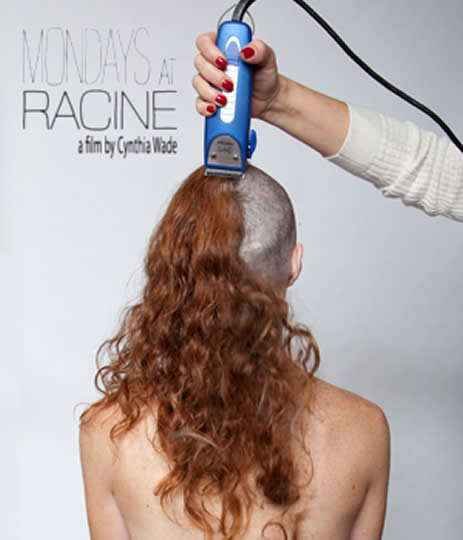
So we started exploring the idea of hair loss as the tip of the iceberg, as the beginning of what might happen in a woman’s life – this is really in many ways a women’s film. The moment of shaving your hair and losing hair, your eyebrows and eye lashes is like the first domino that pushes a line of dominoes in which there are cataclysmic shifts in your life, whether it’d be in your marriage, your primary relationship, your mothering, your job…
Originally, we thought we would be filming in hospitals or in chemo wards. Then I thought it might be interesting to follow nurses and I sent video cameras out to nurses to record their feelings about it. We got back some video diary tapes but it wasn’t quite right. Then we realized cancer patients do not get their head shaved in a medical setting: there are mainly two ways, either they get shaved at home by one of the closest people in their family or they’re going to the salon that they have been going to for years, where they talk of their relationships, their children, their problems, getting ready for their cousin’s wedding, all that small talk that builds up over the years and creates those bonds in a very ordinary way in the salon. To go back there to these trusted beauticians and asking to have their head shaved this time is pretty profound. We were looking for lots of salons in the country, we looked in Los Angeles, in upstate New York. We then found on the internet a salon in Long Island that offered free services to women with cancer once a month and we decided this could potentially be a place to base the film. Robin, my producer, went out there and she knew very strongly the first day that this could be a place where we could explore these issues of beauty, womanhood, marriage and identity through the eyes of a salon where you might follow a woman for two years but you’d keep coming back to the salon as a way of grounding, centering the film.
Cynthia and Rachel who run Racine – a combination of their names – started the salon because they lost their own mothers in the 80s when cancer was more of a death sentence, the treatments were not as sophisticated as today. It was not something people talked about much either. They saw their beautiful, proud mother suffer not only physically but emotionally from being shunned. They saw their mother pull into herself and become very depressed and it made a big impression on them. So in honor of her, they started these Mondays. They go there on their free day and their staff members all volunteer as well.
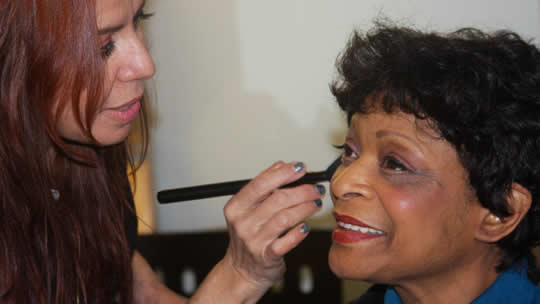 Once we met Cynthia and Rachel, we thought of hair as the tip of the iceberg for lots of emotional and beauty issues – issues very specific to women. We filmed for about two years.
Once we met Cynthia and Rachel, we thought of hair as the tip of the iceberg for lots of emotional and beauty issues – issues very specific to women. We filmed for about two years.
BT: Your style of filmmaking works very well for this film. You are close to your subjects yet you keep enough distance so that the audience can have their own feelings. Many times when such an emotional film is made, the director tends to inject their own feelings but you let the audience find their position toward the subject of the film. Is it something you do intentionally?
CW: Yes, I think so. I don’t want to give too much of the film away but the film explores how cancer affects two marriages. They are very different marriages and they go in very different directions. One of the husbands, because their marriage was under great stress, really resented my presence in his household, and rightfully so: I was the woman with a camera with his wife when he wasn’t there – what was I asking and what was I doing there? He resented my presence and it took me about a year to get an interview with him and then he avoided me for another nine months. I kept telling him, you’re not the bad guy, I can totally see from your perspective how difficult this is, but how could he believe me? I was a woman making a film about another woman… He felt terrible about the marriage and where he was in the marriage. I think it’s possible that with another filmmaker, he would be treated like the bad guy, he would be the villain.
BT: It was a very positive part of the film to allow people not to judge someone
CW: I find I am most comfortable living in gray areas and I am most comfortable making films dealing with gray areas. I am less comfortable when there is black and white. We all have evil in us and we all have the potential to disappoint, we all have the potential to break hearts and to fail the ones we love the most. I haven’t walked a mile in his shoes and I could see from his perspective why he couldn’t be with his wife at that time. She had cancer for nearly 18 years at that point. How could I possible judge that? Each person is shaded gray. I think that if I were ever on a jury, I would be a terrible jury member. I would have sympathy for so many of the people on the bar. But that is a strength the documentary filmmaker must have.
The good news is that when the film was done, I screened it for them. I think it was very uncomfortable for them to see it together because they didn’t know what the other had said in the interviews, but at the end she said to him, I am proud of you because you were 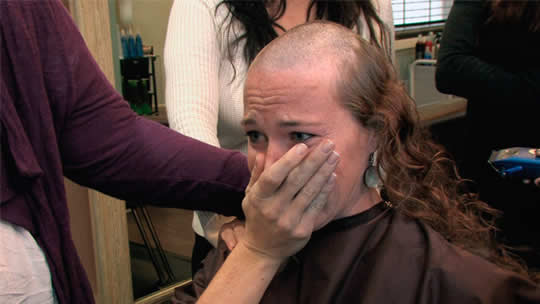 yourself and you were honest about how you felt. I think he was relieved but still waiting for a shoe to drop, for someone to point the finger… And then we had a screening at the Hamptons International Film Festival, which is in the backyard of Racine, in the backyard of the Long Island community. The entire community showed up, the entire church showed up, and he was trembling. Why wouldn’t he be frightened? But they got a standing ovation, people were crying and one man got up to him and said, I failed you, I didn’t realize how difficult this was for you, how much pain you’ve been facing, as a neighbor, a friend and a church member I have failed you and I want you to know that I am here for you. Huge tears started rolling down the husband’s face.
yourself and you were honest about how you felt. I think he was relieved but still waiting for a shoe to drop, for someone to point the finger… And then we had a screening at the Hamptons International Film Festival, which is in the backyard of Racine, in the backyard of the Long Island community. The entire community showed up, the entire church showed up, and he was trembling. Why wouldn’t he be frightened? But they got a standing ovation, people were crying and one man got up to him and said, I failed you, I didn’t realize how difficult this was for you, how much pain you’ve been facing, as a neighbor, a friend and a church member I have failed you and I want you to know that I am here for you. Huge tears started rolling down the husband’s face.
Later he called me and said, this is unbelievable! I thought I was the villain. I said – I told you, who’s the bad guy? There was a palpable sound of relief on the other sense of the line and he said: Cancer is the bad guy. It was a huge breakthrough: he could see from the outside he was dealt a very crappy hand, in terms of his wife getting cancer so young and having cancer for nearly two decades. We’re not judging him. How could you know what it’s like to walk in his shoes? I think it was liberating for him and for them as a couple. It’s like a wall broke down and the film was therapeutic for them, which is lucky because this is not always the case with a documentary film. Sometimes your subjects are not thrilled with the outcome.
But in this case, they sound great, she is very ill but has such a positive attitude. She feels the film was a blessing for them. It’s a mysterious and scary experience for anyone to get into a documentary film. I never thought he husband would call me and thank me and offere to participate in the panels… It was a complete turnaround!
I am much more interested in leaving a film morally murky rather than be didactic.
BT: How difficult was it for you emotionally as a filmmaker to make Mondays at Racine?
CW: It’s always difficult. This film has actually been a relief because everyone is alive! I’ve had other films where people have died. In FREEHELD, my main character never got to see a cut, go to the film festival, she never got the poster she wanted, she never lived to see the film win an Oscar… There’s been a lot of deaths running as a theme through my films. I’ve never figured out quite why other than I feel this pressing urge to create as quickly as I can and to multi-task and work as fast as I can because I’m so aware that this time on this earth for all of us is so brief.
But in this case, it’s been an oddly uplifting experience because everybody’s alive to see this film nominated and go to festivals. With this film, I feel that it’s theirs more than mine. I feel like I was the instrument but it’s their film. So oddly, this film has been less traumatic than some of the other films have made.
BT: How do you see the Oscar nomination helping the cause of your film?
CW: I am thrilled beyond words that the film has been nominated. It’s a great honor! I am very excited for Cynthia and Rachel and the women who come to the Racine salon, they are so excited and it’s great to see that!

